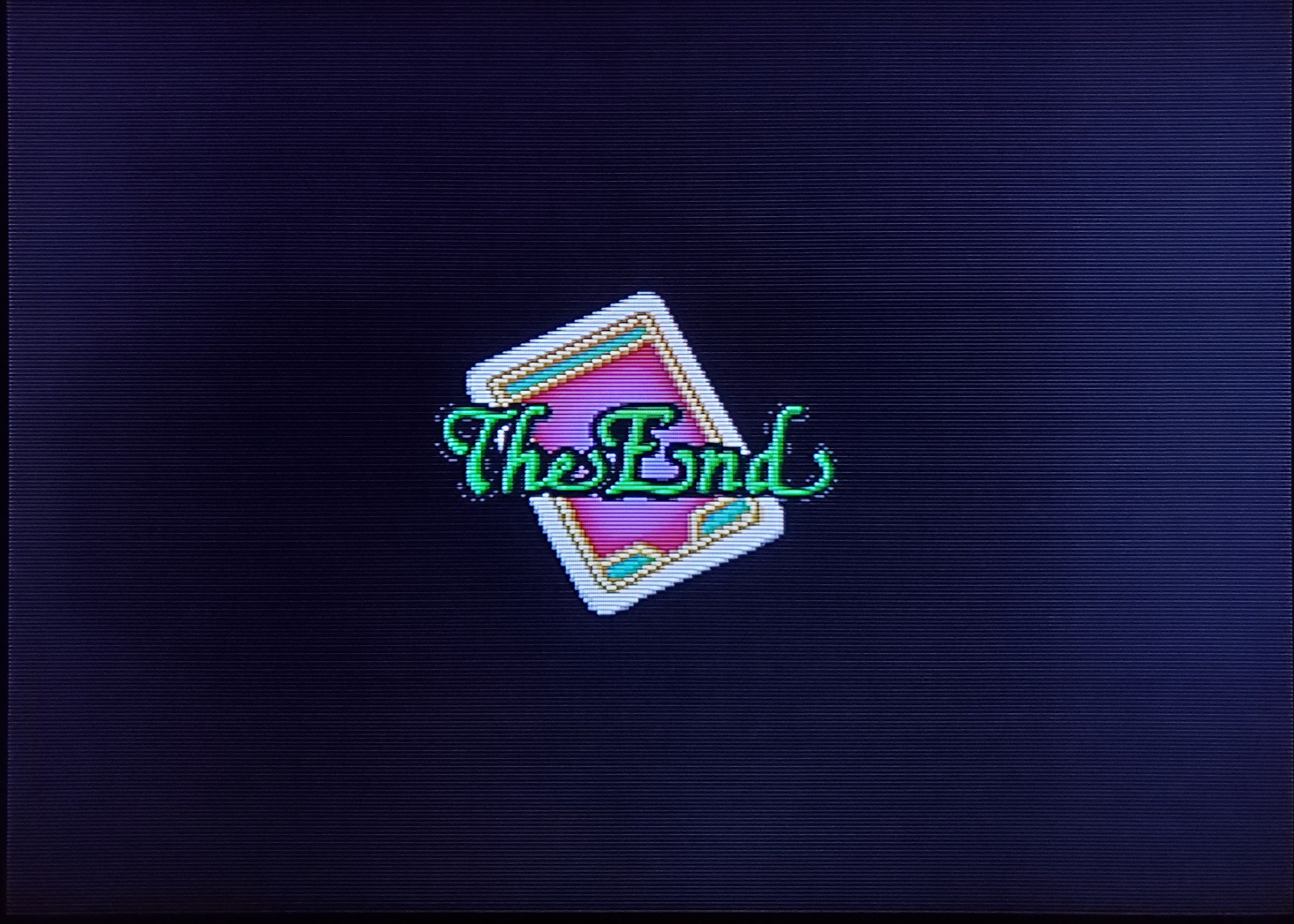
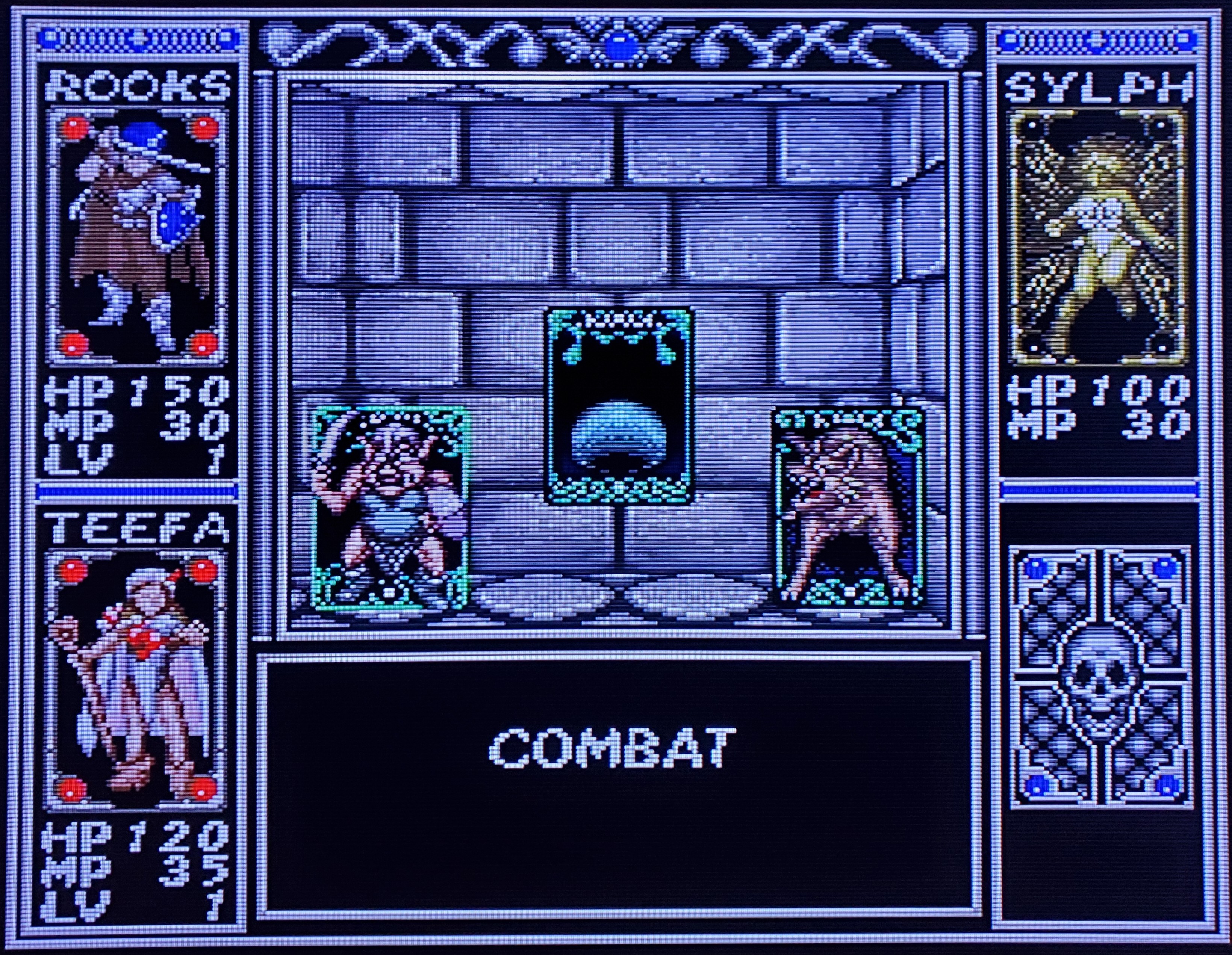
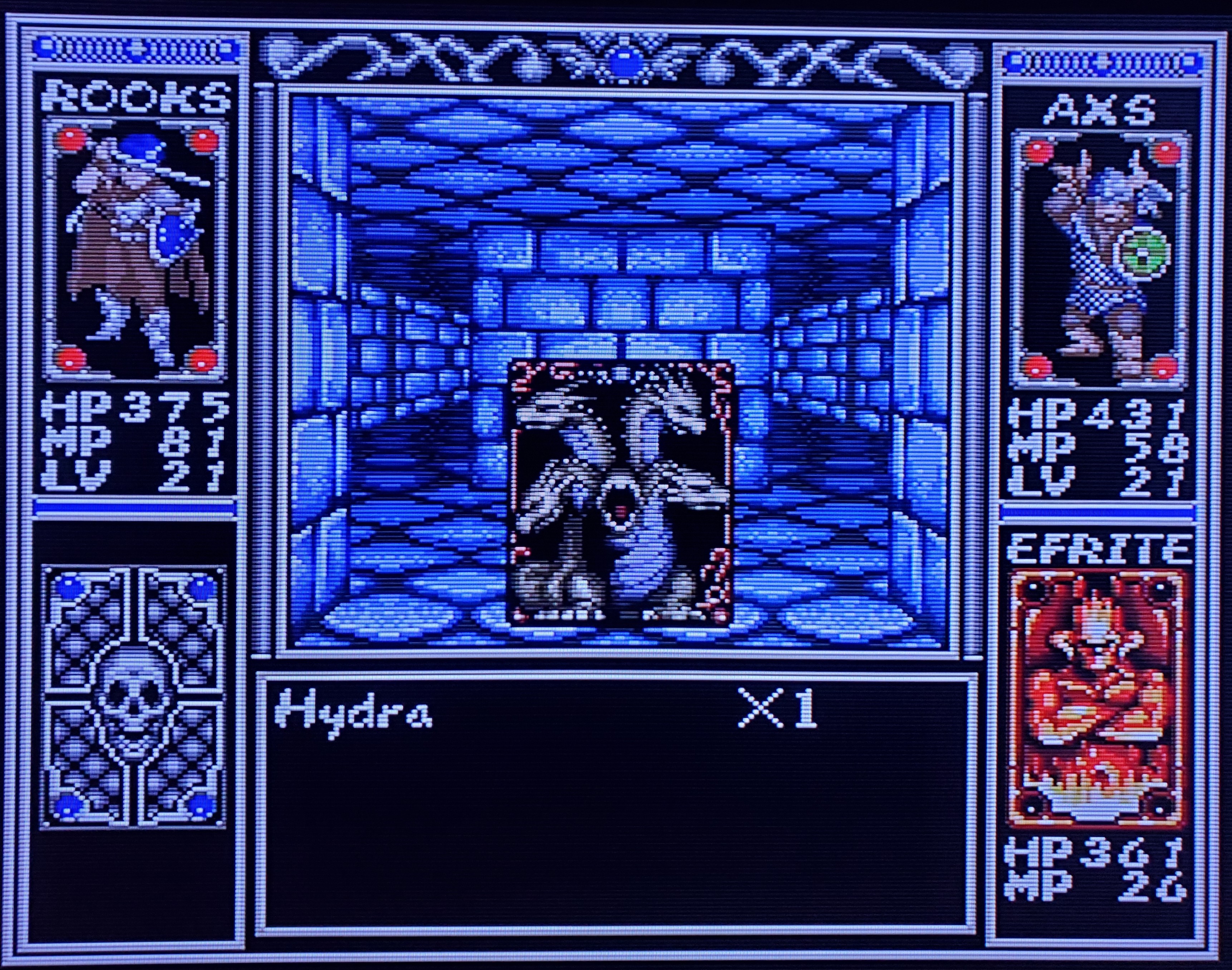
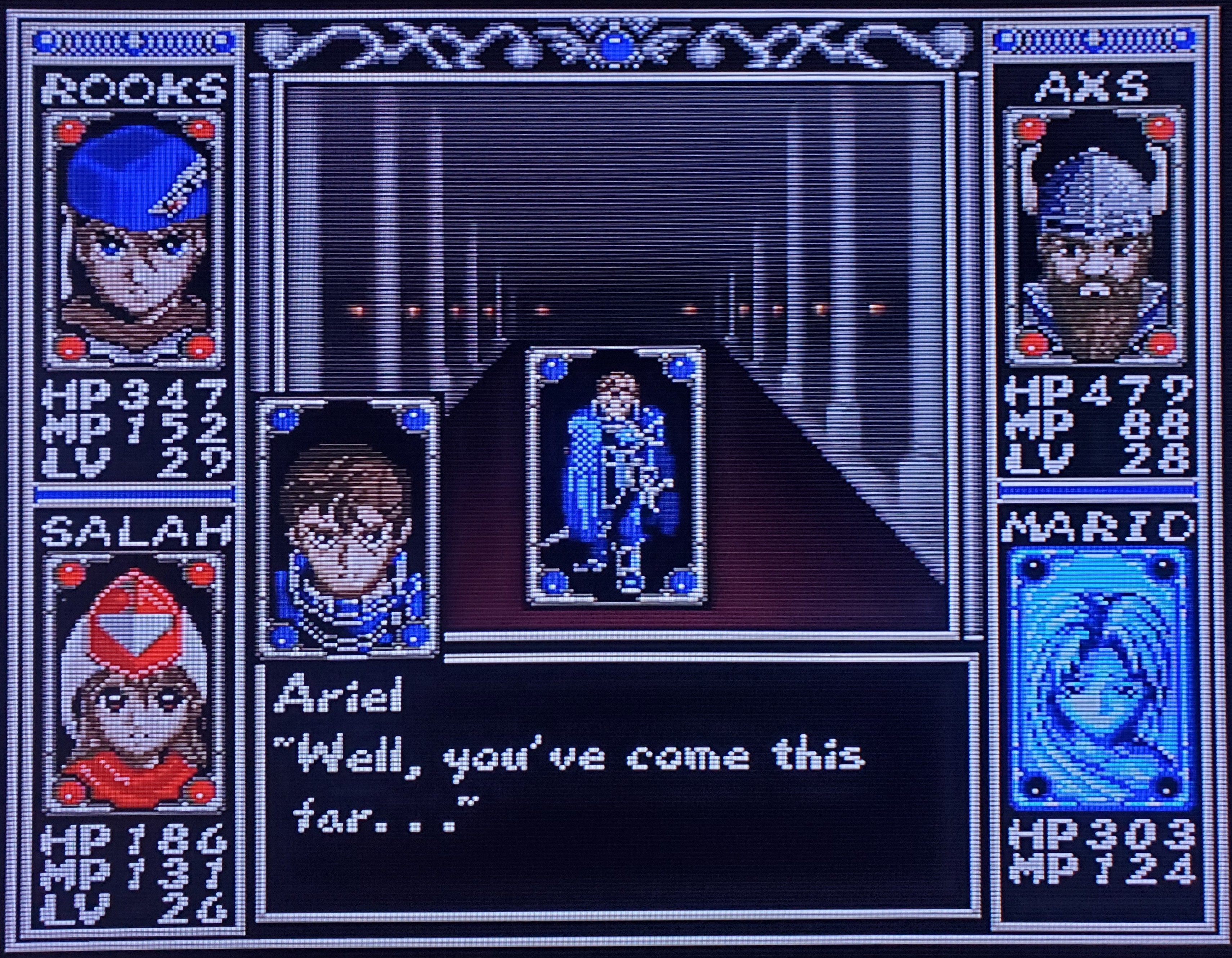
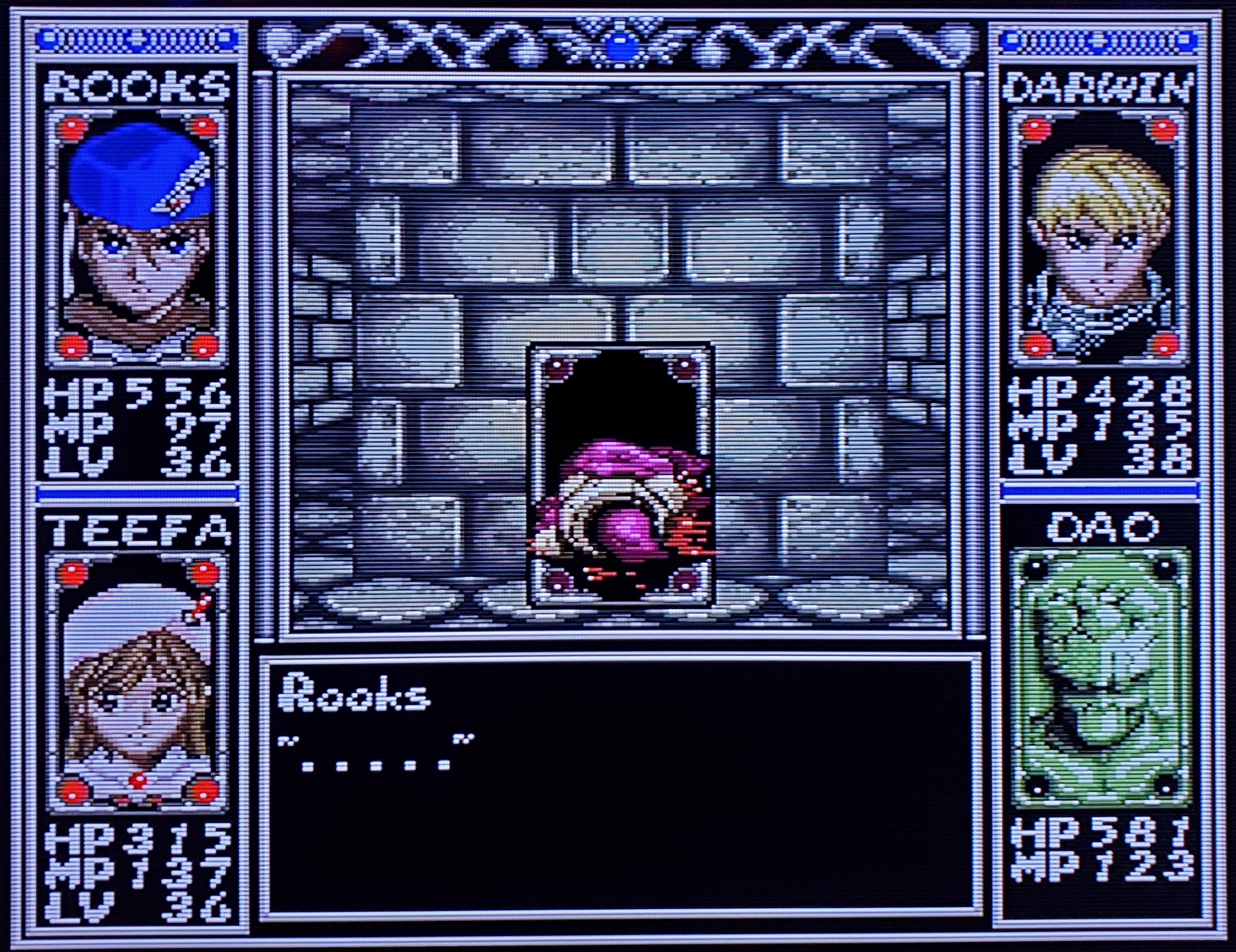
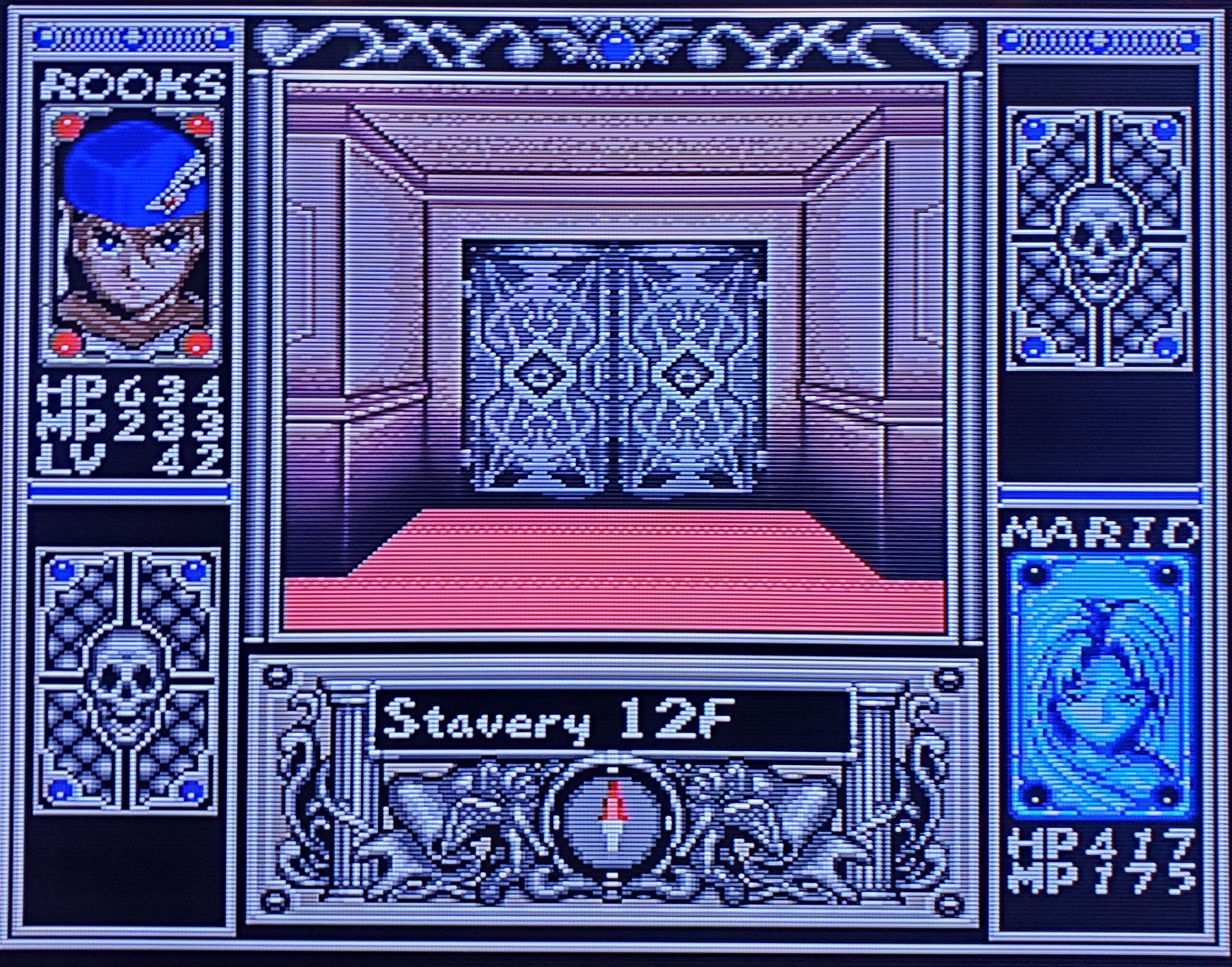
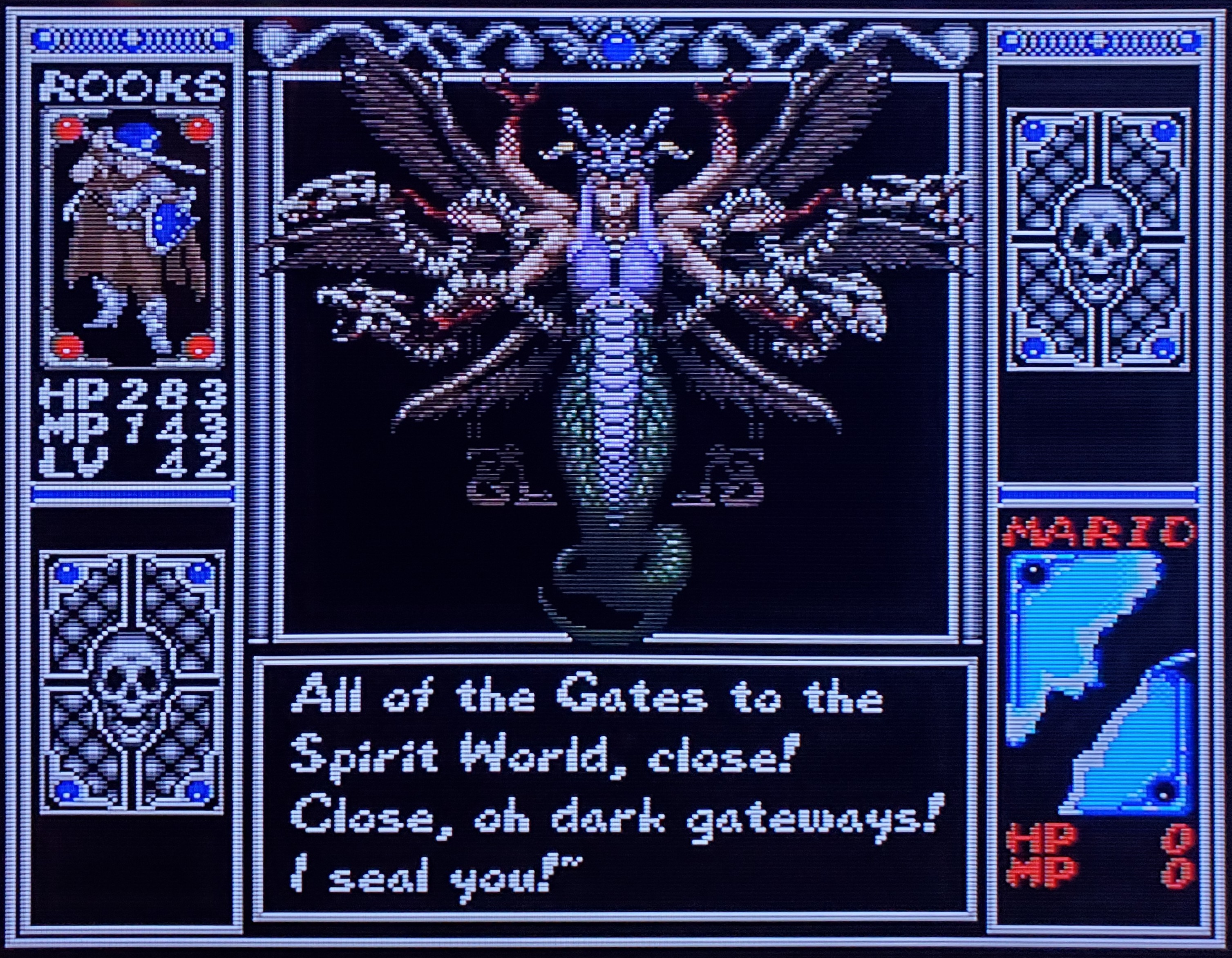
Having previously covered all of the big name Super Nintendo RPGs, your Chrono Triggers and EarthBounds and Final Fantasy VIs, I may as well dip back into some more obscure titles. Such a one is Arcana, HAL Laboratory’s largely forgotten 1992 stab at a Wizardry style first-person dungeon crawl with an intriguing visual aesthetic, a brilliant soundtrack, and…not much else.
But I’m getting ahead of myself. Arcana follows Rooks, a young warrior tasked with saving the mystical land of Elemen from a wizard who’s overthrown the rightful king and now plots to revive an ancient evil deity in order to attain ultimate power. Yeah, you’ve almost certainly heard this exact setup before, and I wish I could say HAL put a clever spin on it, or at least tossed in a respectable plot twist or two. Alas, no. Instead, it’s fantasy world saving business as usual, with Rooks and his rotating cast of generic companions charting their way through various mazes on the hunt for magic MacGuffins.
We may not get a very interesting story, but we are treated to Arcana’s unique artistic choice to depict every character and monster in Elemen (except the shopkeepers) as a stylized playing card. I’m 99% sure this is meant to be a metaphorical creative flourish for the player’s enjoyment, and that none of these beings are really intended to be walking, talking cards. It is quite striking, however, and even serves a gameplay function, as the color of a monster’s card border indicates its affiliation with the four elements of earth, air, fire, and water. There’s a rock-paper-scissors dynamic between the four elements that should be familiar to any Pokémon fan. Against a fire monster, for example, it behooves you to break out the water attacks and exploit its innate defensive weakness to that element.
This elemental angle also ties into Rooks’ ability to call on four spirit companions to fill out the party roster. He starts out with access to Sylph, the air spirit, and unlocks the remaining three at preset points in the story. Only one spirit can be active at time, though Rooks can freely toggle between any of the available ones at will. Generally speaking, spirits have weak defense and physical attacks due to their inability to equip weapons and armor. They compensate for this with their broad range of potent spells. That, and the fact that they automatically regenerate health and magic power with each step, unlike human characters.
The moment-to-moment experience of exploring mazes and engaging in random turn-based battles with the monsters therein works well enough, I guess, with the caveat that it’s all extremely basic. There are no traps, secret doors, or memorable landmarks in any of these dungeons, only open corridors dotted with the occasional treasure chest. It’s actually a step below the first Phantasy Star in this respect, if you can believe that. On the plus side, Arcana does include a handy auto-map feature, which is more than I can say for many games in this sub-genre.
Taken purely as a simple, repetitive dungeon crawler with some cool art and an excellent score by veteran Kirby composers Jun Ishikawa and Hirokazu Ando, Arcana might well merit a tepid recommendation. Unfortunately, its poor localization and serious design flaws need to be accounted for, too, and together they prevent it from rising to the level of mediocre.
How bad is this translation? Let’s just say that there are numerous points where you’ll find yourself staring at a string of text and wondering what the speaker is even attempting to convey. At one point, a villain burst in and seized one of my party members, proclaiming “Wait, don’t move. The Princess is dying. I wonder, Rooks!” He then ran off with said princess in tow. Eventually, I pieced together that he was meant to be saying something along the lines of “Don’t move or the Princess dies.” I still have no clue what he was wondering about. This isn’t an exception, either. The majority of the dialog reads like people nursing major head injuries yelling past each other. It’s a mess, and rarely in the funny Zero Wing sort of way that might redeem it a tad.
In addition to a mutilated script, Arcana incorporates several distinctly player-hostile design choices. Oddly enough, one of them was shared by the last RPG I reviewed, Tengai Makyō: Ziria. That is, any time one of your human allies is defeated in combat, you’re hit with an instant game over. It’s worse here than it was in Ziria, in fact, since you don’t just get sent back to town and docked a bit of gold when it happens. You have no choice but to load your last save, potentially losing significant progress. Two RPGs in a row pulling this exact nonsense on me! What are the odds?
Similarly rude is Arcana’s tendency to have new characters join your party deep inside dungeons without a shred of gear on their persons. Of course, they’re practically useless in this state, forcing you to choose between warping back to town for a trip to the weapon shop or pressing on and hoping you can survive the remainder of the challenges ahead with one of your allies effectively naked. You could theoretically prepare for this and bring a few spare items along with you, yet how would you know when to do so and what to bring on an initial playthrough without consulting a guide? The cynic in me suspects the designers knew you’d be caught off guard by this and feel compelled to backtrack, thereby lengthening the total play time.
Arcana makes a strong first impression with its singular presentation. Sadly, the creative visual theming and sweet music ultimately weren’t enough to salvage the whole production for me. This is a surprisingly poor effort from the typically reliable HAL. If they’d opted for a less obnoxious approach to character death, given new recruits some no-frills starting equipment, and put in the extra effort to polish up the English text, it still wouldn’t be an exceptional example of the form, merely a tolerable one. Oh, well. I suppose every pack has its joker.

It’s been a long time since I played through the game (probably 25 years!), and I remember enjoying it then. But I’m also almost positive I would have been using a guide to make sure I was ready for those places where I’d lose a character and would pull their equipment, or have it ready to go when they joined. Although it’s also possible I saw weapons in a shop and said… hmm, I bet someone’s going to join soon.
I’d also forgotten how bad the localization was. Robotrek had a similar issue, and that game in particular deserved better.
Anyway, it does look really striking, and that soundtrack (especially Second Armageddon) is fire. Not sure what I’d think about it now, but I like to hold onto those positive memories from back in the day.
LikeLiked by 1 person
It wouldn’t say I hated it as such. It would have been pretty decent with just a little more polish.
LikeLiked by 1 person